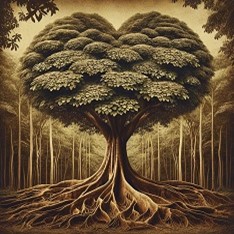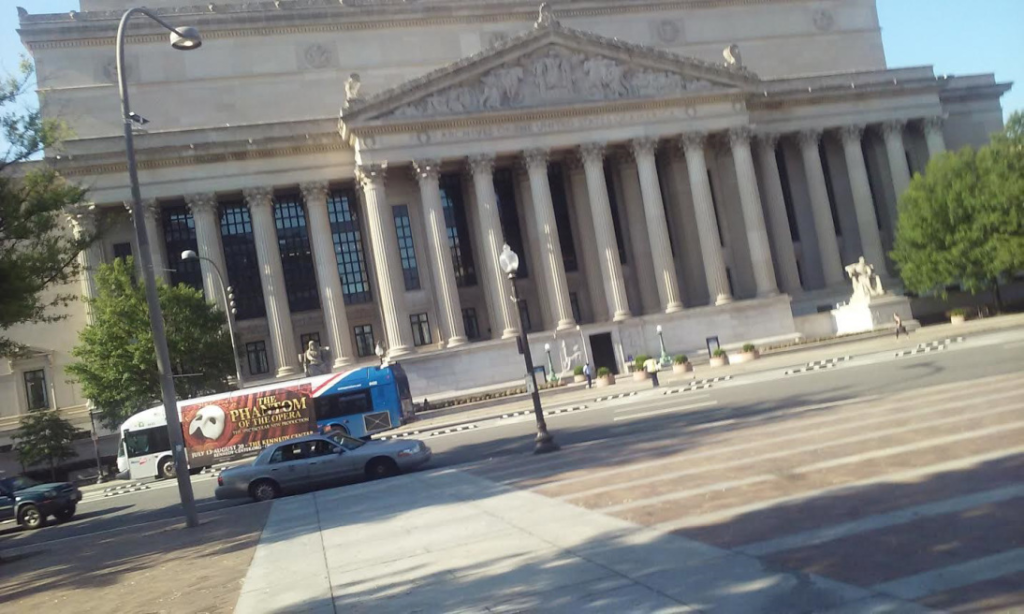As we all prepare to have a less than typical Thanksgiving, I want to pause and reflect on all the genealogy things that I am thankful for this year. Sure, it’s been difficult with all the archive closures, Zoom conferences and the inability to visit far flung relatives but let’s look at the bright side for a moment.
I am thankful that the pandemic allowed me to:
1. Reorganize my office. I took the time, since I had lots of it this past summer, and made my work space more efficient. I replenished supplies, pitched those pencil nubs and found items I didn’t even recall I had! This was always on my to-do list and now it’s not.
2. Pitched old family records. Don’t gasp – I scanned many of them. I found my deceased mom, 2nd cousin and sister-in-law’s health records. I had tax returns from the 1970’s that we lugged from house to house over the years. Before the tax code changed, we kept the receipts for improvements made on a home we haven’t lived in for 30 years. Found the flood insurance settlement when we lost everything in Hurricane Elena in 1985. I think going through these old documents of other difficult times in our lives made the current situation more tolerable. It was a testament that this, too, shall end one day.
3. Cleaned my Cloud backup storage. Cuddled up on the sofa with the laptop and on a week of rainy days, spent some time each day moving files around or deleting them entirely. Now I’ve got even more space for when I am able to get back out into the world to research without having to pay for more space.
4. Attended Conferences from my backyard. I know that virtual conferences aren’t the same as in-person but if it hadn’t been for the pandemic, I would have had to miss many that I was able to attend this year. I don’t think I’ve ever sat through a lecture and not learned something or been reminded that I should try what I already knew to solve a research problem. I’m so looking forward to Roots Tech, too!
5. Save $! As a long time reader you know I’m a frugal person and look for genealogy deals whenever I can. Although my business did take a hit this year, I was fortunate that my first quarter was larger than in previous years. Can’t explain how that worked out and am thankful that it was. Another way I saved was the organizations that made their records available for free or lowered the price for a limited time at the start of the pandemic. I looked in places I never was able to search before and found lots of info.
6. Researched my own family. Since business was down, I was able to spend time on my own family. In the past few years, this has been severely limited so I was glad for the time to do this. The value of a research log cannot be emphasized enough; I didn’t have to waste much time in picking up where I had left off by reviewing where I had previously searched.
7. Made many new virtual “friends.” Thank heavens for the archivist that continued to answer queries, search a vertical file or scan and email a page from needed text. Although never considered essential workers, they most definitely are to a genealogist and I greatly appreciative of their dedication. I also reached out to relatives I had never connected with before and together, we worked to solve family mysteries.
8. Caught up on my reading. All those journals, magazines, books and pamphlets/flyers/brochures I’ve picked up from past trips have been examined, noted in my tree or pitched. I have a pile in the garage ready to donate to our local library as soon as they begin to accept material again. Finally went onto websites and requested that I stop having journals mailed to me when I certainly can download and read them on a tech device.
9. Planned for the future. I have taken the time to review my findings and know where I want to travel when it becomes safe to do so. In the past, I’d get a last minute offer to travel and then take an extra day to do my own researching if I had family that once lived in the area. Now I know what I don’t know and have identified possibly where the answers might lie. Of course it won’t be 100% accurate but it’s a better way to use my future time then the spur of the moment approach I often had to do.
10. Learned more about myself. I never knew I could become a homebody. Last week, a colleague mentioned how much she hated being home. I’m not there yet. I am very content and that is the biggest surprise I’ve had. Prior to March 14th, I came home late most every week night, ate a rushed often take out meal and went to bed, then up at 5 and out the door soon after. Since I was a teenager, this has been the longest period of time I haven’t been on a flight. I’ve only topped off my car’s gas tank 3 times in 8 months and only then because I wanted to keep a full tank during our hurricane season. I’m thankful for my close family who I enjoy being with 24-7 who have made this dramatic change of lifestyle doable.
Adversity truly does reveal character. Our ancestors have experienced life’s turmoil and paved the way for us to have it easier than they did. Although the upcoming holidays will be far different from any I have previously experienced, I’m thankful for knowing their life story. It gives me strength and hope for better days ahead. Have a wonderful Thankfilled week!







